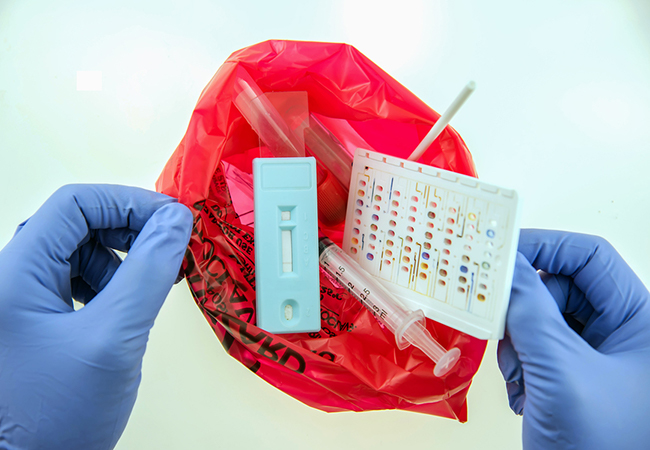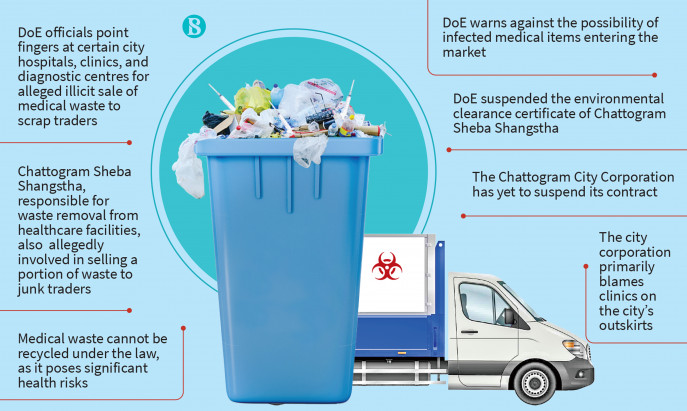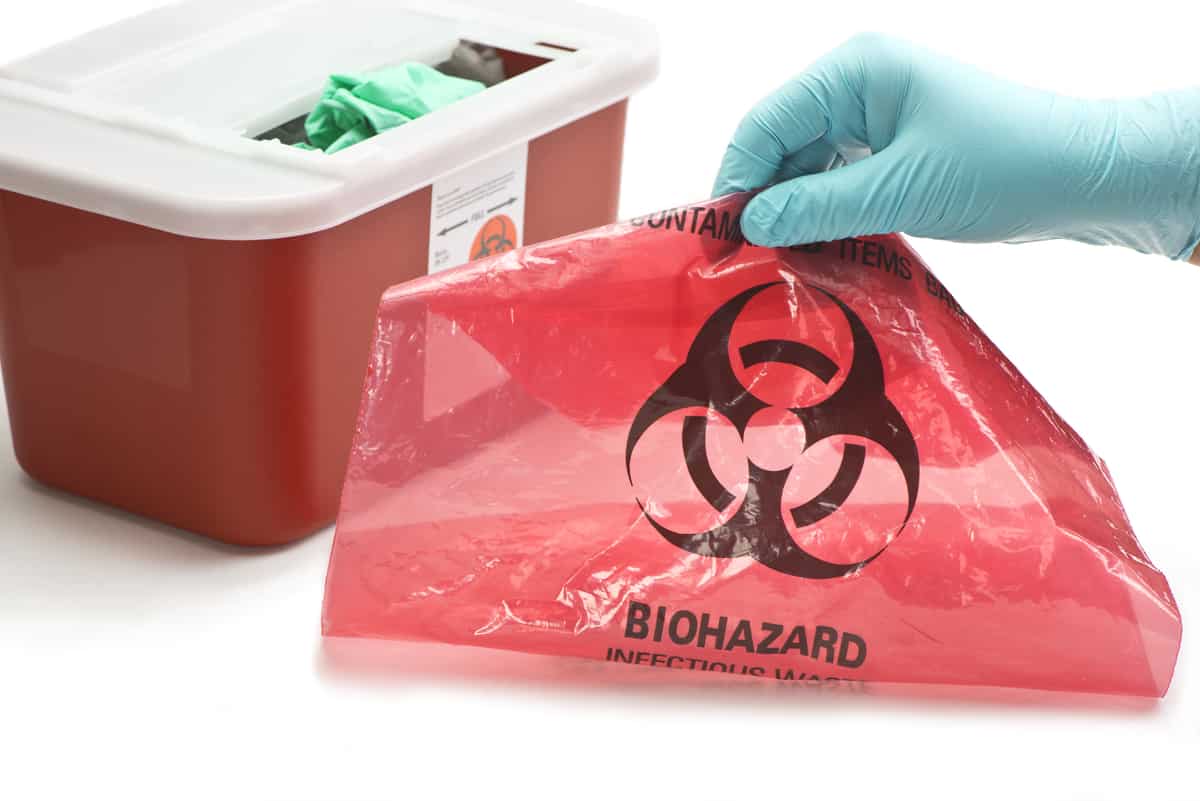Medical Waste Removal Excellence: Elevating Safety And Security Criteria in Your Center
Medical Waste Removal Excellence: Elevating Safety And Security Criteria in Your Center
Blog Article
Stay Ahead of Laws: Specialist Advice on Medical Garbage Disposal
In a globe where the health care industry is constantly advancing, it is imperative for clinical centers to stay ahead of laws when it involves the proper disposal of clinical waste. With strict standards and constant governing adjustments, it can be testing to browse the intricacies of this procedure. With expert suggestions, centers can make sure compliance and mitigate dangers connected with improper waste disposal. From understanding the various classifications of medical waste to implementing the right collection and partition techniques, this conversation will offer important insights and actionable ideas to aid facilities stay ahead of laws in the ever-changing landscape of medical waste disposal.
Comprehending Medical Waste Categories
Recognizing medical waste groups is essential for appropriate disposal and management in healthcare centers. Clinical waste describes any waste produced by healthcare activities that may posture a hazard to public wellness or the atmosphere. It is crucial to categorize medical waste accurately to ensure its secure handling, disposal, transportation, and treatment.
There are several groups of clinical waste that healthcare centers require to be acquainted with. The most usual classifications include contagious waste, pathological waste, sharps waste, pharmaceutical waste, and chemical waste. Each classification has specific guidelines and policies for its appropriate administration and disposal.
Infectious waste consists of products polluted with blood or other bodily liquids, such as handwear covers, dress, and research laboratory cultures. Pathological waste refers to human cells, organs, or body components that require special delivery and disposal. Sharps waste consists of made use of needles, syringes, and other sharp things that can cause injury and transfer infections. Drug waste comprises expired, extra, or polluted drugs that need cautious handling and disposal. Lastly, chemical waste includes solvents, disinfectants, and various other chemical compounds utilized in health care facilities.
Remaining Up-To-Date With Regulatory Modifications
Remaining existing with regulatory adjustments is important for healthcare centers to ensure conformity and appropriate monitoring of clinical waste disposal. medical waste removal services. With policies continuously advancing, it is necessary for health care facilities to stay up-to-date to stay clear of penalties, penalties, and potential injury to the environment and public health and wellness
To remain ahead of regulatory modifications, health care facilities must develop a system for surveillance and monitoring updates. This can be done by subscribing to regulatory newsletters, going to seminars and workshops, and proactively joining market associations. Furthermore, facilities ought to assign a personnel member or group responsible for remaining notified and distributing details to pertinent stakeholders.
Regular interaction with regulative agencies is additionally essential. Medical care centers need to establish relationships with local, state, and federal agencies to ensure they understand any kind of changes in guidelines that might impact their waste management techniques. This can be done via routine meetings, involvement in public comment periods, and proactive engagement with regulatory firms.
Additionally, healthcare facilities should consider partnering with waste monitoring firms that specialize in clinical garbage disposal (medical waste disposal services with WasteX). These business are frequently skilled in the newest laws and can provide support and assistance to guarantee conformity
Executing Proper Collection and Segregation Methods
To properly take care of medical waste disposal, medical care centers should develop appropriate collection and segregation methods according to regulatory standards. Executing these approaches makes sure the secure handling and disposal of potentially harmful materials, protects the atmosphere, and minimizes the threat of injuries and infections to medical care employees and the public.
Proper collection and segregation approaches include the use of assigned containers and labeling systems. Medical care centers should supply plainly identified containers for various kinds of clinical waste, such as sharps, contagious waste, pharmaceutical waste, and non-hazardous waste. These containers need to be color-coded and plainly significant to prevent confusion and promote easy identification.
In addition, medical care centers ought to train their team on the right procedures for accumulating and setting apart medical waste. This consists of enlightening them on the various sorts of waste, the appropriate containers to make use of, and the value of Recommended Site following regulations and standards. Regular training sessions and refresher training courses ought to be performed to guarantee that team member continue to be current on finest methods.
Furthermore, medical care centers ought to develop a system for regular collection and disposal of medical waste. This might involve partnering with licensed waste monitoring companies that focus on medical waste disposal. These firms will certainly make certain that the gathered waste is transferred and disposed of in compliance with regulatory needs.
Selecting the Right Disposal Techniques

Incineration is just one of one of the most usual and efficient methods for disposing of certain kinds of clinical waste, such as pathological waste and sharps. It includes the regulated combustion of waste at heats, home minimizing it to ash. Nevertheless, incineration can release damaging contaminants right into the air and add to air pollution.

Chemical treatment entails the use of chemicals to counteract the waste and disinfect. Microwave treatment utilizes microwave energy to warm and decontaminate the waste.
Guaranteeing Conformity With Documents and Training
After thoroughly considering the ideal disposal methods for clinical waste, healthcare facilities have to guarantee compliance with laws and minimize ecological effect by implementing effective documents and training procedures. This action is essential in maintaining a lasting and safe environment for both medical care employees and the basic public.

Training is similarly vital in guaranteeing conformity with policies. Healthcare employees that deal with clinical waste needs to obtain suitable training on waste segregation, taking care of, and disposal procedures. This training should cover subjects such as the appropriate use of individual protective equipment, recognition of various types of waste, and the proper disposal methods for every waste classification. By providing detailed training, medical care centers can equip their personnel to make educated decisions and lessen the threat of improper waste disposal.
Final Thought
To conclude, remaining in advance of guidelines in medical garbage disposal is vital for medical care centers. medical waste removal. Comprehending the various categories of medical waste, remaining updated with regulative modifications, applying proper collection and partition techniques, choosing the suitable disposal methods, and guaranteeing compliance with paperwork and training are all vital steps. By complying with these guidelines, healthcare organizations can efficiently handle and dispose of medical waste in a accountable and safe manner
From comprehending the different groups of medical waste to applying the best collection and segregation methods, this discussion will provide valuable insights and actionable ideas to help centers my sources remain in advance of guidelines in the ever-changing landscape of clinical waste disposal. - medical waste disposal services with WasteX
The most typical groups include infectious waste, pathological waste, sharps waste, pharmaceutical waste, and chemical waste. Medical care centers ought to give plainly labeled containers for different types of clinical waste, such as sharps, transmittable waste, pharmaceutical waste, and non-hazardous waste. Health care facilities ought to establish an extensive system to record and track all facets of clinical waste disposal, consisting of kinds of waste generated, quantities, and disposal approaches utilized. Health care workers who handle clinical waste must obtain suitable training on waste segregation, dealing with, and disposal procedures.
Report this page